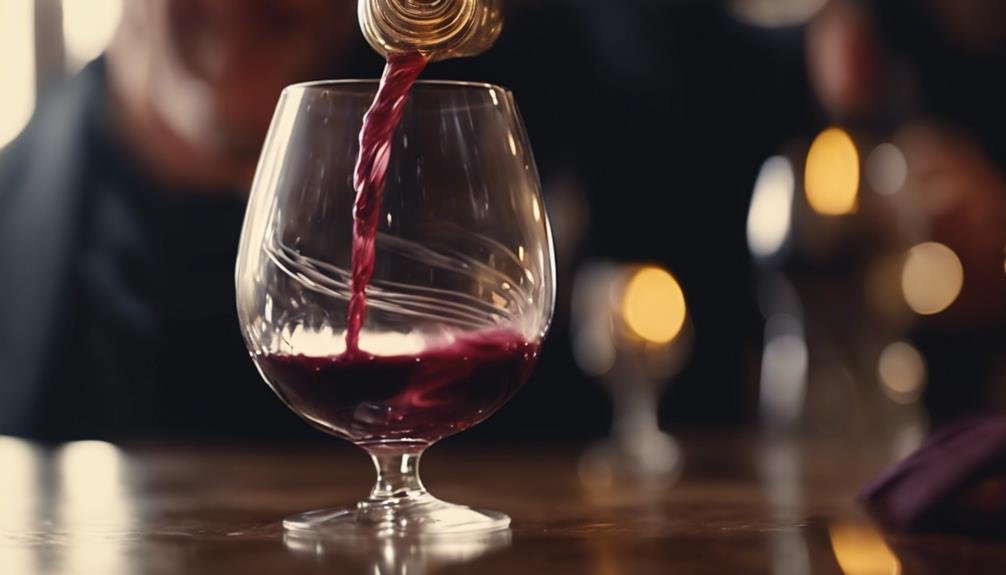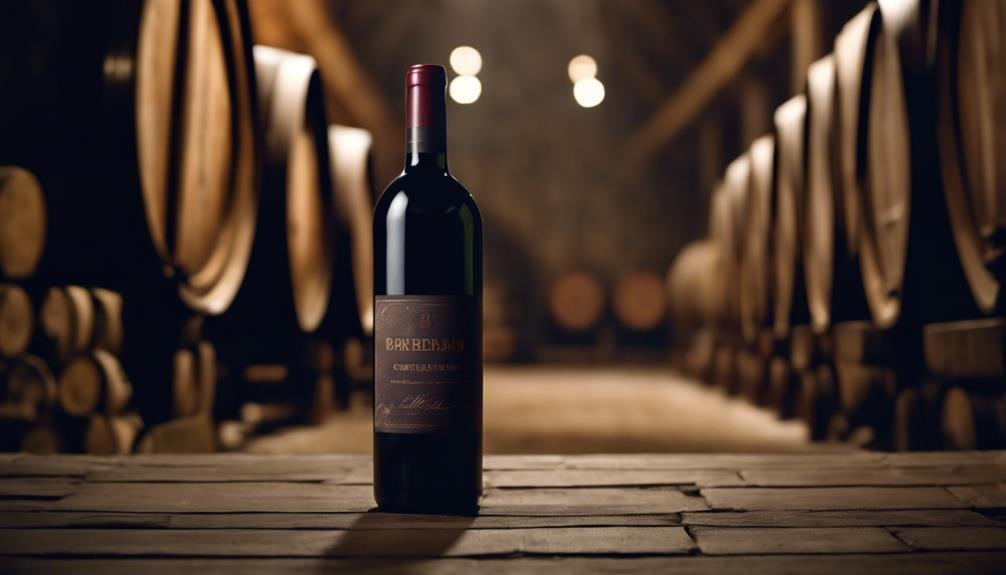Discover Bordeaux red wines, a blend of Merlot and Cabernet Sauvignon, offering medium- to full-bodied elegance with flavors of black currant and plum. These wines pair beautifully with rich dishes like roasted lamb and aged cheeses. Bordeaux blends originated in France and include unique varieties like Cabernet Sauvignon, Merlot, and more, known for their medium- to full-bodied nature. Serving tips suggest decanting and slightly chilling the wine, enhancing its complex flavors. Explore Bordeaux's diverse regions such as Libournais and Sauternais, each offering distinct characteristics. Uncover the value and aging potential of Bordeaux wines, influenced by sought-after vintages and craftsmanship.
Bordeaux Red Wines
Bordeaux red wines, originating from the renowned Bordeaux region in France, are primarily crafted using a blend of Merlot and Cabernet Sauvignon grapes, embodying medium- to full-bodied characteristics with distinct flavors of black currant and plum. When it comes to food pairings, these wines complement rich dishes like roasted lamb, beef stew, or aged cheeses.
Tasting notes of Bordeaux red wines often include black currant, plum, graphite, cedar, and violet, with mineral and fruit notes. These wines are known for their high tannins, allowing them to age gracefully for several decades. Depending on the quality and region, fruit flavors can range from tart to ripe, offering a diverse tasting experience for enthusiasts.
Bordeaux red wines offer exceptional value, especially on good vintages, making them a popular choice for wine collectors and connoisseurs alike.
Bordeaux Blend Varieties
Exploring the diverse array of grape varieties composing Bordeaux blends reveals the intricate tapestry of flavors and characteristics that define these renowned wines. The Bordeaux Blend has its origins in Bordeaux, France, where it combines varietals such as Cabernet Sauvignon, Merlot, Cabernet Franc, Petit Verdot, and Malbec.
This blend offers a unique flavor profile that often includes notes of black currant, plum, graphite, cedar, and violet. Bordeaux blends are known for their medium- to full-bodied nature, high tannins, and the ability to age well for several decades.
The aging process enhances the wine, resulting in a range of fruit flavors that evolve from tart to ripe, depending on the quality and vintage. Bordeaux blends are highly regarded for their complexity and depth, making them a favorite among wine enthusiasts.
Serving Bordeaux Wine

When presenting Bordeaux wine, proper serving techniques can enhance the overall tasting experience. Red Bordeaux is best served slightly below room temperature, and decanting it for at least 30 minutes can help the flavors open up. Store red wines below 65°F to maintain their quality.
When choosing glassware, opt for a Bordeaux wine glass with a large bowl to allow the wine to breathe and concentrate its aromas. For food pairings, consider matching red Bordeaux with dishes like grilled steak, lamb, or aged cheeses to complement its bold flavors.
Expect to spend around $25–$30 for a great bottle of Red Bordeaux, which pairs well with a variety of hearty meals. Bordeaux bottles also add an elegant touch to any table setting.
Bordeaux Regions Overview
Properly understanding Bordeaux wine involves recognizing the distinct characteristics and nuances found within its various regions.
In the Libournais region, bold plummy red wines dominate, with Merlot playing a significant role. This area includes sought-after sub-regions like Pomerol, known for its excellence, and Saint-Emilion, famous for its charm.
Bordeaux boasts several classifications such as Crus Artisans and Crus Classés de 1855, each representing different levels of quality and prestige.
Entre-Deux-Mers produces both red and white wines, offering diversity to Bordeaux's portfolio.
The Sauternais regions are renowned for their sweet white wines, a result of the Botrytis fungus.
Understanding these regions provides insight into the diverse and rich tapestry of Bordeaux wines.
Bordeaux Wine Aging & Value

Factors contributing to the aging potential and value of Bordeaux wines include:
- Bordeaux wines have a strong aging potential due to their high tannins and acidity, which help them evolve gracefully over time.
- The value of Bordeaux wines is influenced by the vintage, with certain years being more sought after for their exceptional quality and aging potential.
- Wine investment in Bordeaux is often tied to the reputation of the vintage, as collectors and enthusiasts look for opportunities to acquire bottles that will increase in value over time.
- Vintage comparison plays an important role in determining the worth of Bordeaux wines, with older vintages often commanding higher prices due to their rarity and quality.
Understanding these factors can guide both enthusiasts and investors in making informed decisions when it comes to Bordeaux wines.
Frequently Asked Questions
What Makes Bordeaux Wines Age so Well?
Bordeaux wines age well due to their high tannins and acidity, which act as natural preservatives. Proper cellar conditions, such as consistent temperature and humidity levels, along with storing bottles on their sides to keep corks moist, aid in preserving these wines' characteristics over time.
Are There Any Vegan-Friendly Bordeaux Wines Available?
Vegan-friendly Bordeaux wines cater to those seeking ethical options. These wines offer a spectrum of taste profiles, from luscious black currant to robust cedar notes. Pair them with plant-based dishes for a delightful culinary experience, showcasing Bordeaux's versatility.
Can Bordeaux Wines Be Enjoyed With Spicy Foods?
Pairing Bordeaux wines with spicy foods can be enjoyable, as the bold flavors of the wine can complement the heat of the dishes. The key lies in finding a balance between the wine's fruitiness and spiciness of the food for a harmonious experience.
How Do Bordeaux Wine Prices Vary by Vintage?
The varying prices of Bordeaux wines by vintage capture the essence of a fine orchestra, where investment potential orchestrates market trends. Quality harmonizes with price, creating symphonies of value that crescendo with each unique year.
Are There Any Organic or Biodynamic Bordeaux Wine Options?
Organic options and biodynamic choices in Bordeaux wines are increasingly available, catering to consumers seeking sustainable and natural winemaking practices. These wines adhere to strict regulations, offering a healthier and environmentally conscious alternative for wine enthusiasts.
Conclusion
To summarize, Bordeaux wines offer a fascinating journey through the vineyards of France, highlighting the craftsmanship and intricacy of red blends. From the decadent flavors of black currant to the refined aging potential, Bordeaux wines continue to serve as a hallmark of quality in the realm of wine.
As we explore further into the nuances of these celebrated wines, one cannot help but ponder: what other hidden treasures lie waiting to be discovered in the depths of Bordeaux's vineyards?